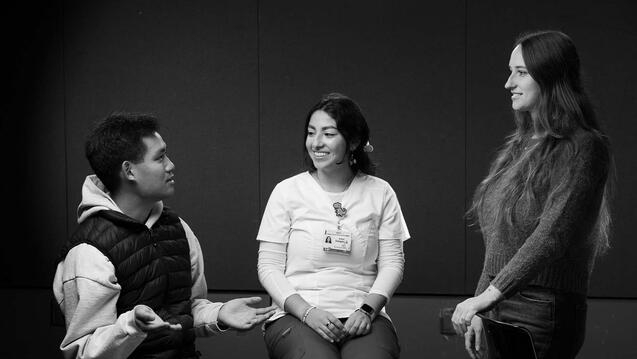USF Helps Jobless Nurses Transition to Ambulatory Care
With nurses graduating in a down economy facing anemic hiring rates, the University of San Francisco School of Nursing and Health Professions' transition program has found success placing recent graduates in registered nursing positions in the public and community health arenas.
Initiated last fall, the Transition Program in Ambulatory Care Settings helped 16 of 20 participants find work as RNs. This spring, 17 out of 22 participants found work. Two more are continuing their nursing education.
The idea of the 12-week program, a joint effort between USF, the California Institute for Nursing & Health Care, the California School Nurses Organization, and the nonprofit Community Health Partnership, funded by the Gordon and Betty Moore Foundation, is to support current students who are about to graduate and alumni who have graduated in the last three years. Participants work 20-hour weeks alongside professionals at sponsoring organizations and take four hours of seminar and simulation training courses at USF each week.
So far, participants have found jobs in acute inpatient care facilities such as Kaiser Permanente, in ambulatory care clinics, as school nurses as case managers in outpatient care agencies, and as public health nurses in the U.S. and abroad.
On top of deepening their training in ambulatory care, a specialty for which they become certified at completion, participants expand their network and on-the-job experience giving them an edge in their job hunt. “A big part of what helps the RNs in the program is the coaching and mentoring that occurs from peers, the faculty, and their (employers),” said Lillian Jones-Bell, USF transition program coordinator.
Participating nurses work as part of a multidisciplinary team, learning case management, supervisory skills, quality improvements and assurance, triage assessment, and providing preventive care to vulnerable populations.
In addition to helping new nurses find part-time work and build their skills and confidence, the Transition Program helps ensure that nurses remain in contact with their profession during a time when many graduates are drifting away. “Keeping them working and, therefore, in the industry will help prevent us from experiencing another critical nursing shortage when the economy recovers and as our baby boomers age over the next five to 10 years. “The fastest growing area of jobs for RNs will be in outpatient care as care continues to shift from inpatient to outpatient care settings as part of our health care reform and recovery” Jones-Bell said.
With the current program having shown its potential and funding coming to an end, Jones-Bell is already working to secure a grant for a similar collaboration called the Transition Program in Home Care Nursing for next year. “The Kaiser Permanente Fund for Health Education at the East Bay Community Foundation would like to work with us on this endeavor because there is such a shortage of RNs in home care and hospice,” Jones-Bell said.
Know someone with a powerful USF story? Let us know! usfnews@usfca.edu | Twitter @usfcanews


